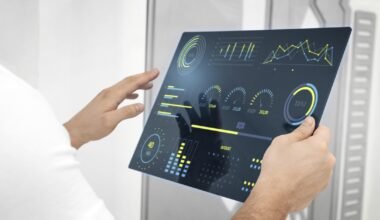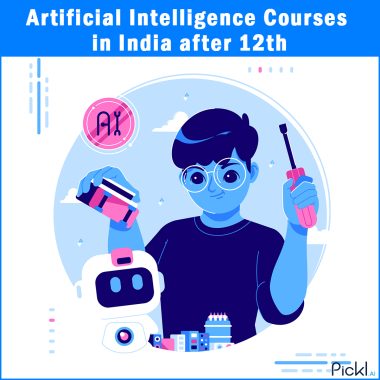Summary: This blog explores the hottest emerging technology trends of 2025—AI, IoT, blockchain, and more—reshaping industries and careers. Discover how these innovations impact our future and why mastering data science with Pickl.AI is essential for staying relevant in this fast-paced tech landscape.
Introduction
Technology is changing at a speed that can leave your head spinning, but here’s the thing: it’s shaping the way we live, work, and even think. The world of tech is like a rollercoaster ride, and if you don’t stay ahead of the curve, you might just miss the most exciting parts.
So, let’s take a moment to dive into the emerging technology trends that are going to make 2025 unforgettable. From AI taking over to quantum computing changing the game, this blog will guide you through the technology shaping the future. Trust us, you don’t want to be left behind!
Key Takeaways
- AI dominates 2025’s tech space, transforming healthcare, retail, and smart automation.
- IoT and 5G together enable connected, intelligent cities and personalised experiences.
- Quantum computing promises breakthroughs in drug discovery, cybersecurity, and modelling.
- Edge computing and RPA drive real-time, automated, efficient operations across industries.
- Learning data science is critical to understanding, leveraging, and thriving in these tech trends.
Artificial Intelligence
AI is no longer a futuristic dream—it’s here, and it’s everywhere! In 2025, AI isn’t just for futuristic robots or chatbots. It’s already transforming industries like healthcare, finance, and transportation.
In fact, the global artificial intelligence market was valued at USD 279.22 billion in 2024 and is projected to grow at a significant CAGR of 35.9% from 2025 to 2030.
Imagine a world where your car drives you to work while you catch up on emails, or a doctor diagnoses diseases faster and more accurately with AI tools. From smart assistants that know what you need before you even ask to personalised shopping experiences, AI is here to make life smoother, faster, and a whole lot cooler!
Internet of Things (IoT)
The Internet of Things (IoT) is basically about connecting devices to the internet to make them smarter. Think about your smartwatch telling you when it’s time to get up and move, or your fridge ordering groceries when you run out of milk.
But IoT goes beyond just cool gadgets. It’s changing entire cities! Smart homes, traffic management systems, and even waste management will be powered by IoT. So, you can expect a more efficient and interconnected world where devices talk to each other to make life easier.
Blockchain
When you hear “blockchain,” you might think of Bitcoin. But it’s much more than that. Blockchain is the technology behind secure, transparent digital transactions. And in 2025, it’s not just about cryptocurrency—it’s making waves in industries like healthcare, finance, and supply chain management.
Blockchain’s ability to ensure trust without the need for a middleman means it can revolutionise things like verifying medical records, tracking food from farm to table, and preventing fraud. It’s all about security, transparency, and efficiency. Who knew tech could be this trustworthy?
Spatial Computing: AR & VR
Augmented Reality (AR) and Virtual Reality (VR) are taking us beyond the screen and into new dimensions. While VR immerses you in fully digital worlds, AR enhances the real world by overlaying digital elements. In 2025, these technologies will be game-changers.
For instance, AR can help you try out furniture in your living room without leaving your house (thanks, IKEA!). Or imagine VR assisting doctors to perform surgeries with 3D models of the body, improving accuracy and learning.
From gaming to education and even shopping, AR and VR are revolutionising how we experience the world. Get ready to step into the future, literally!
5G Connectivity
Let’s face it, we all love faster internet. And 5G is here to deliver just that! With 5G, you’ll experience lightning-fast downloads, ultra-clear video calls, and seamless streaming without any annoying buffering.
But 5G isn’t just about speed. It will make the Internet of Things (IoT) even smarter and more reliable. Expect enhanced telemedicine services, better-connected smart cities, and seamless integration of AI and AR applications.
In short, 5G will be the backbone that holds all these innovations together, providing the speed we need to keep up with a fast-moving world.
Quantum Computing
Quantum computing might sound like something from a sci-fi movie, but in 2025, it’s becoming a reality. Traditional computers process information using bits (1s and 0s). Quantum computers, however, use qubits, which can exist in multiple states at once. This unlocks a whole new level of processing power.
What does this mean? For one, it could revolutionise fields like drug discovery, materials science, and even cybersecurity. Quantum computers could help us solve problems that are currently impossible for classical computers, like cracking tough encryption or designing life-saving drugs. It’s like opening a door to a whole new dimension of possibilities.
Edge Computing
Edge computing is about moving data processing closer to the source of data rather than relying solely on a centralised cloud. In 2025, this trend is set to take off, especially with the rise of IoT devices that generate massive amounts of data.
The big advantage of edge computing is speed. Instead of sending data to a far-away data center, processing happens locally, making real-time decisions much quicker.
For example, in self-driving cars, edge computing will be crucial for making split-second decisions based on local data, such as detecting obstacles. From smart cities to industrial IoT, edge computing is enabling faster, more efficient operations that rely on real-time data.
Robotic Process Automation (RPA)
Robotic Process Automation (RPA) utilises software robots, also known as “bots,” to automate repetitive and mundane tasks. In 2025, RPA will not only be used for simple tasks like processing invoices but will also integrate more advanced AI, enabling it to handle more complex decision-making processes.
From handling customer support tickets to managing back-end operations, RPA is making businesses smarter, more cost-efficient, and faster. The future of work will include AI-driven robots that help employees by taking over the time-consuming tasks, allowing them to focus on more strategic, creative, and value-adding work.
Synthetic Biology
Synthetic biology is a futuristic field that combines biology and technology to design and create new, artificial life forms or modify existing ones. By 2025, synthetic biology could be one of the most disruptive innovations, with vast potential in fields like medicine, agriculture, and environmental sustainability.
From creating bacteria that can clean up oil spills to producing biofuels from algae, synthetic biology has the power to revolutionise industries. In medicine, it could lead to breakthrough treatments by engineering cells to fight diseases like cancer. This technology could fundamentally change how we approach everything from food production to environmental conservation.
In Closing
The emerging technology trends of 2025 are reshaping industries, driving innovation, and creating limitless career opportunities. From AI to quantum computing, these technologies are not just buzzwords—they’re transforming the world we live in. Understanding these trends isn’t just fascinating—it’s essential for staying relevant in a fast-evolving digital world.
If you’re looking to upskill and stay future-ready, mastering data science is a smart move. Platforms like Pickl.AI offer expert-led, hands-on courses to help you learn and apply data science in real-world scenarios. Explore how you can ride the wave of these trends by turning data into decisions with Pickl.AI.
Frequently Asked Questions
What is the top emerging technology trend in 2025?
AI remains the top emerging technology trend in 2025, with applications spanning healthcare, finance, and retail. It powers automation, personalisation, and predictive analytics, making it essential for both businesses and job seekers to understand and implement.
Why is data science important in emerging technology trends?
Data science drives insights behind every emerging technology trend. Whether it’s AI, IoT, or synthetic biology, data powers decision-making, optimisation, and automation. Learning data science equips professionals with skills to analyse trends, solve problems, and unlock opportunities across multiple tech domains.
How can I prepare for careers in emerging technologies?
Start by building a strong foundation in data science, machine learning, and cloud computing. Enrol in courses from trusted platforms like Pickl.AI, stay updated with tech news, and work on real-world projects to understand how technologies like AI, blockchain, and IoT are applied.



